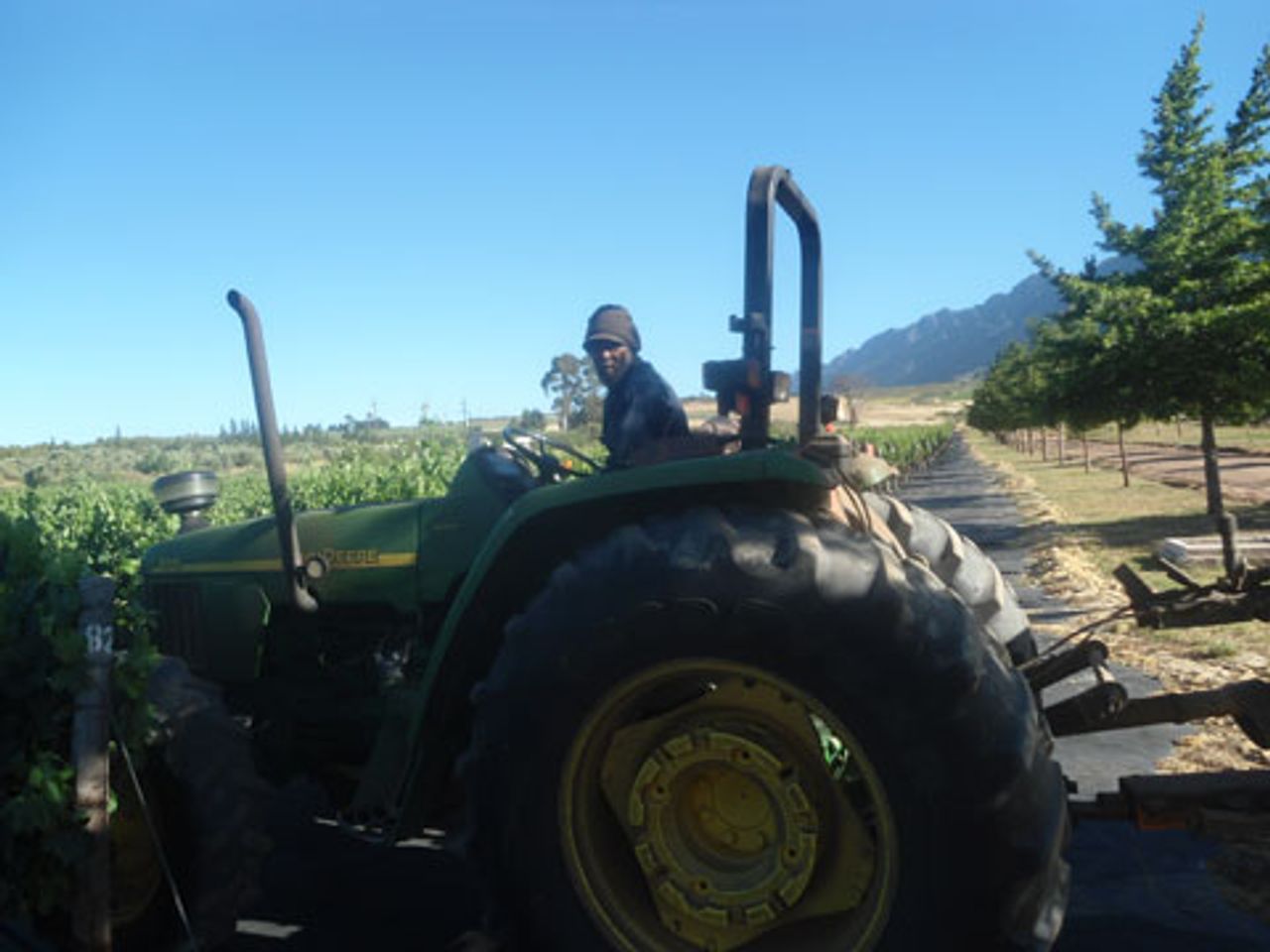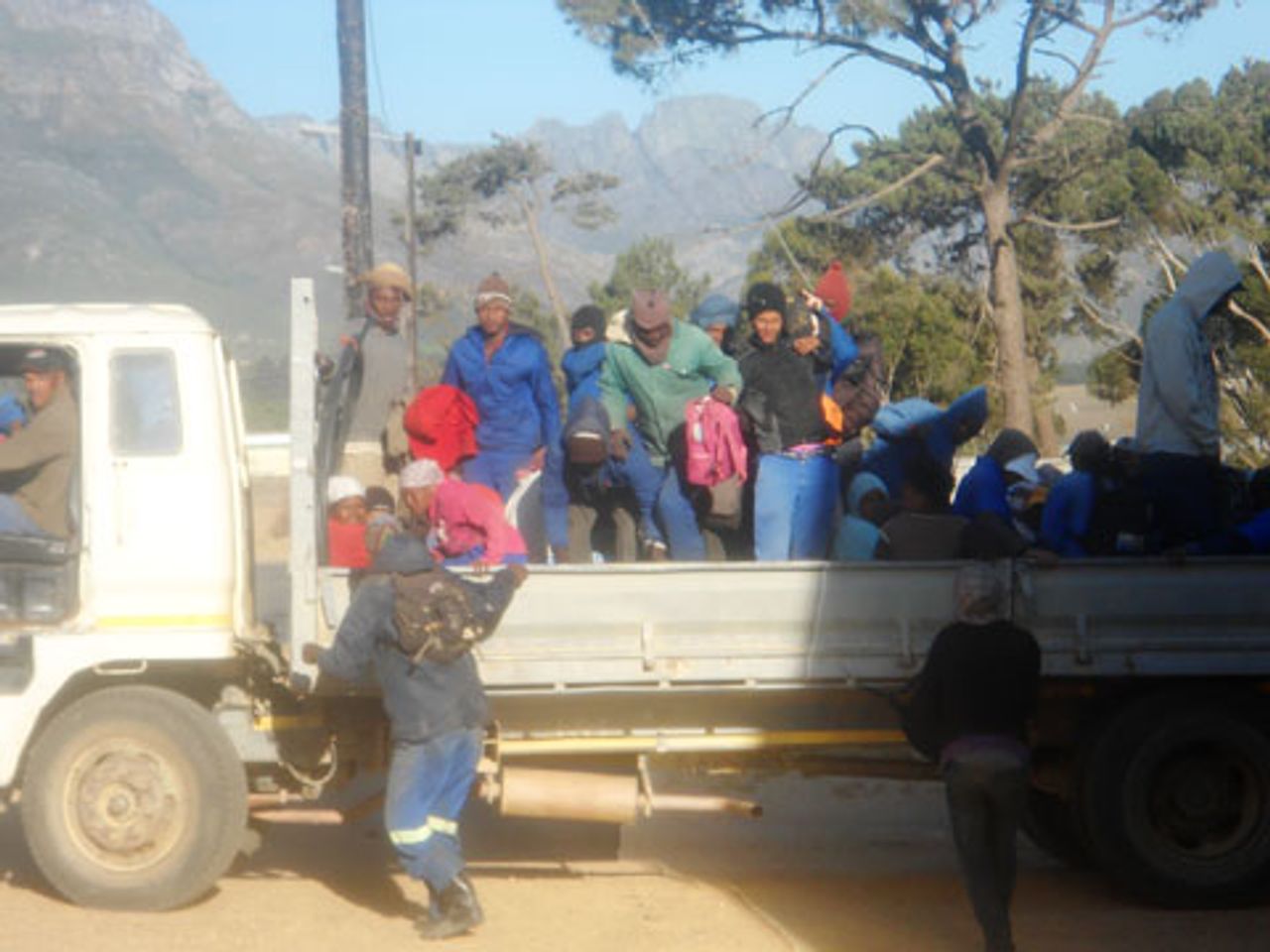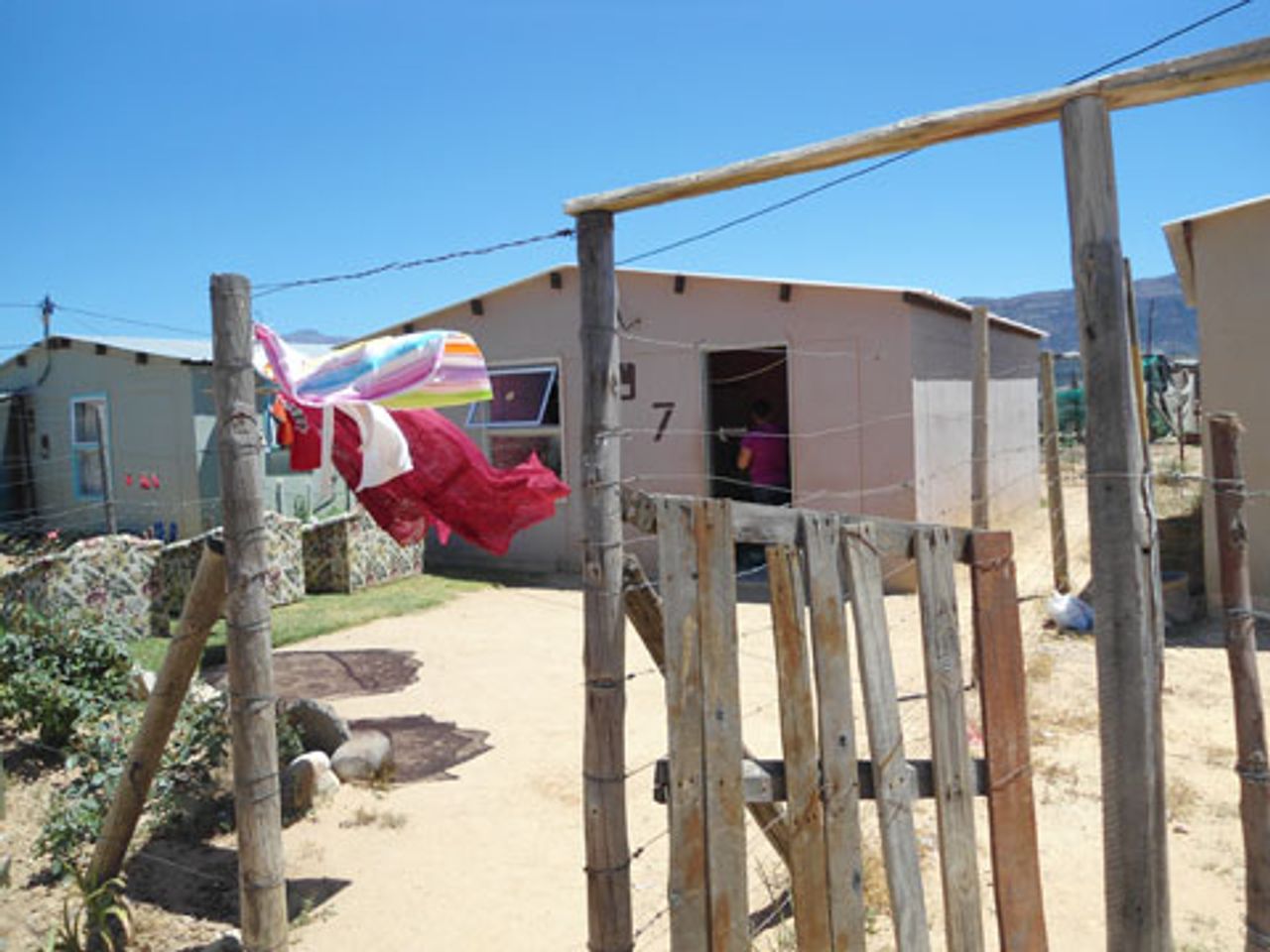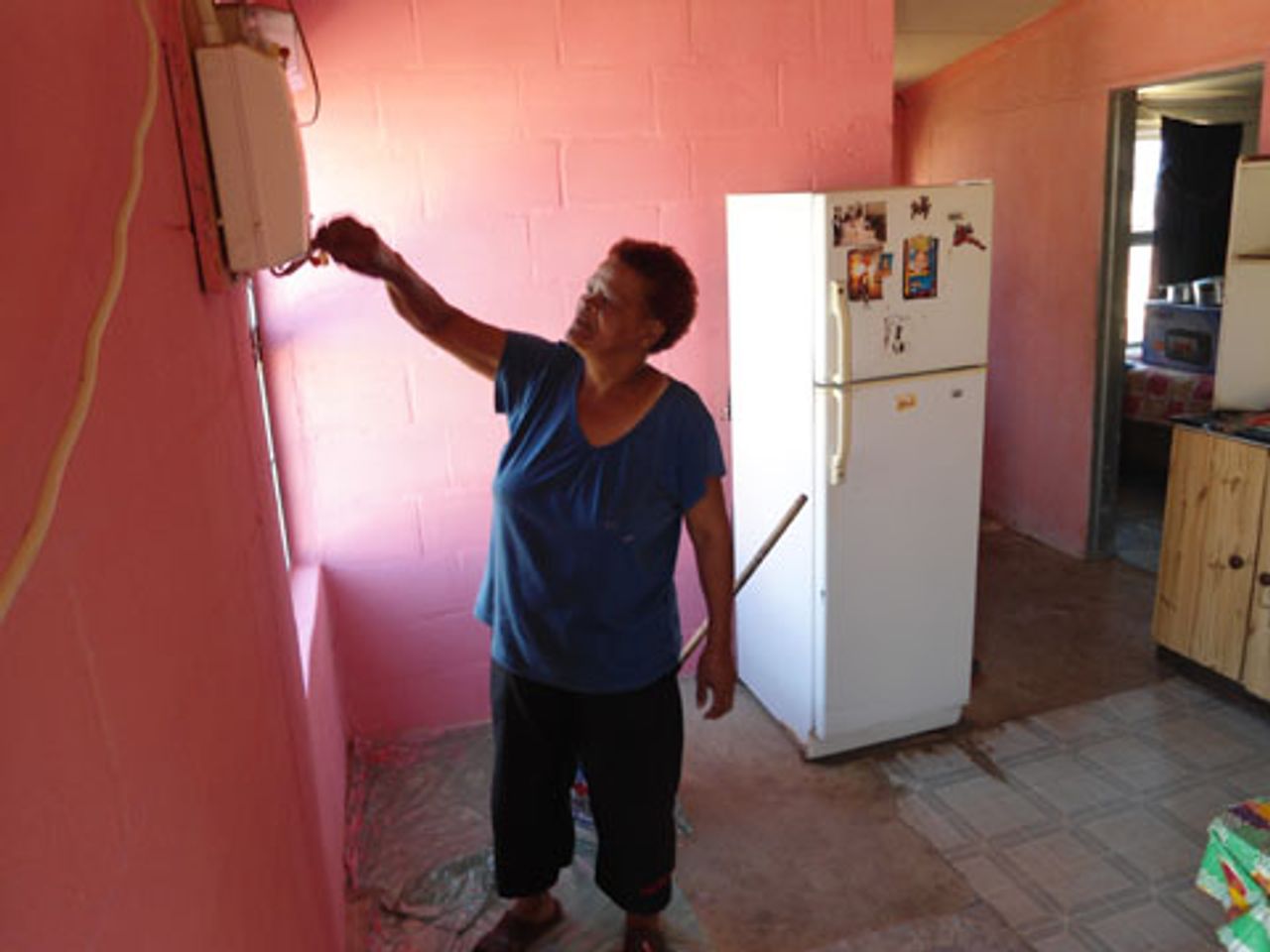Following a three-week long standoff with police, the militant uprising, in which two farmworkers were killed, was temporarily suspended after a meeting on November 19, involving farm workers, the Congress of South African Trade Unions (COSATU), the African National Congress (ANC) and the Democratic Alliance (DA).
COATSU and the main political parties, the ANC and the DA, are seeking to demobilize the farmworkers struggle, which follows and has been motivated by the eruption of strikes in the mining industries. Most of the farmworkers are not members of trade unions.
For their part, farmworkers have given the government until December 4 to respond to their demands for an increase in the minimum daily wage from R70 (US$7.75) to R150 ($16.70).
Agriculture Minister Tina Joemat-Pettersson said that the Employment Conditions Commission has met to decide on the basic level of pay for Western Cape farmworkers, but no decision has been made public yet.
There is a great deal of money at stake for the South African ruling class. South Africa exports R3.5 billion worth of table grapes. The Hex River Valley—which includes De Doorns, the epicentre of worker unrest—makes up 34 percent of industry production by volume and 28 percent in value terms, according to Rhomona Gounden, manager for trade, marketing and communications at the South African Table Grape Industry. Striking farm workers brought the table grape industry to a standstill.
Janus Goosen, owner of the Ou Stasie farm outside Wolseley, said they could not complete their harvest and that it was difficult to project damages. “If there is another strike many farms could really suffer. We can’t handle another strike, so we are just praying that government can come up with a solution before December 4.”
 Farmworker on the job
Farmworker on the jobFarmworkers, who had not been paid for the duration of the strike, returned to work in anticipation of government’s decision. The majority of farmworkers believe that, in the absence of a government decision to increase the minimum wage to R150, an even bigger confrontation lies ahead. The situation remains extremely tense.
Nico Williams, leader of an ad hoc committee of farmworkers in Wolseley said that the initial strike “would be nothing compared to what can follow if the government does not come up with something concrete before the deadline of December 4. We are putting our faith in this process because workers risked a lot with the original strike.”
 Worker transportation
Worker transportation
Jacques Minnaar, a 43-year-old farmworker from the Pine Valley area of Wolseley, said that R70 per day did not even enable workers to meet their most basic needs. He continued, “I am a temporary worker and have been for many years. To think that earning even R150 per day would make people a lot better off is not true. People actually really need the extra money just to buy food, because you must remember that a lot of people are not employed and they depend on those that work for their survival.” Minnaar said that up to 10 people have to survive on one person’s earnings.
 An example of farmworkers' housing
An example of farmworkers' housingFarmworker Justice Mohlane said that workers were ready to strike again if their wage demands are not met. He said that farmworkers continued to find inspiration from their “brothers” in the mining industry.
On 16 August, thirty-four mineworkers at the British-based Lonmin platinum mine in Marikana were massacred by the police, and another 78 were wounded. Lonmin eventually conceded to mineworkers’ demands and gave significant salary increases. At its height, the strike action spread across the entire mining industry, involving more than 100,000 miners in the platinum, gold and iron ore industries.
Farmworker Jan Jonathan from the Ou Stasie farm in the Wolseley area said, “I think people went on strike mainly because they want a better life. That includes people who have been living on farms all their lives and also seasonal workers. That is the main reason for the current situation.”
 Magdalena Daniels, mother of Michael Daniels, who was shot dead by the police
Magdalena Daniels, mother of Michael Daniels, who was shot dead by the policeMagdalena Daniels worked for 18 years as a domestic worker for the Dicey family on the La Plaisante farm. Magdalena is the mother of 27-year-old Michael Daniels, her only child, who was shot dead by the South African Police Services (SAPS) in Wolseley two weeks ago.
Describing the circumstances of farmworkers, Magdalena said that R70 per day was just not enough to make ends meet. “The cost of living goes up every year. And year after year it becomes more difficult for people to make ends meet. I live in Pine Valley with many other farm labourers, and people really actually just want the money for basic daily needs like food and accommodation. Especially young people like my son who don’t have houses suffer, because you can still buy food with R70 per day, but to try and start to even think about buying a house is impossible.”
Magdalena continued, “It is really very difficult when you lose your only child in circumstances like this. We just hope that we get the salary raise because people are still very tense in the area and there can easily be more strikes to come.”
